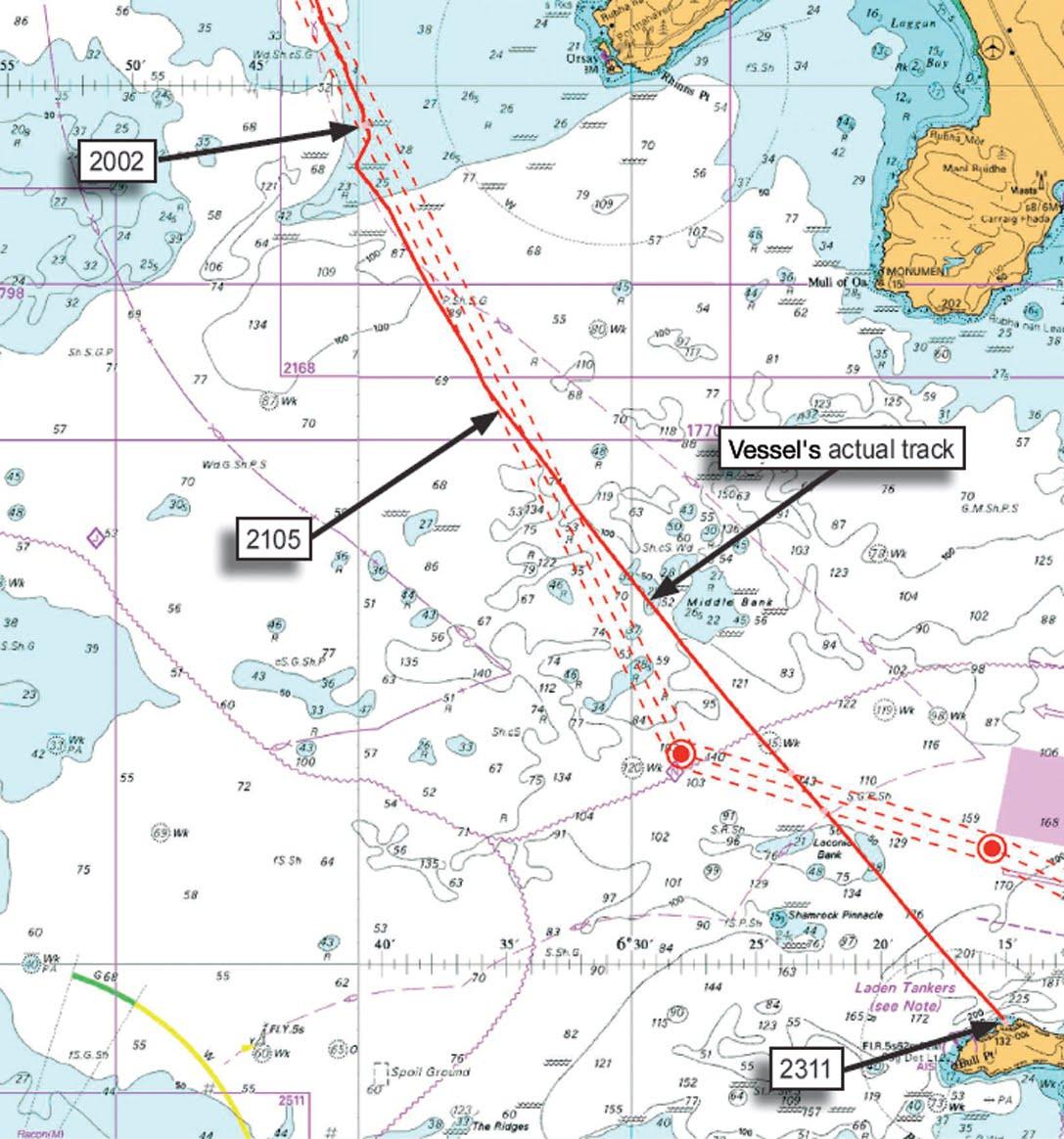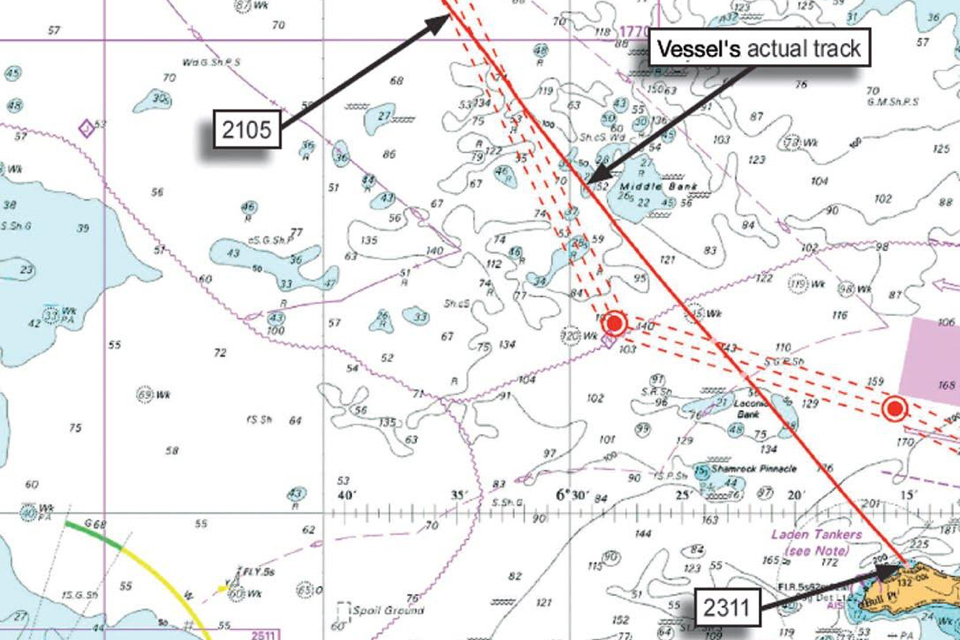If a crew member smells alcohol on the breath of a relieving officer, the watch should not be handed over. Many crew members are afraid to voice their concerns, however, especially when a higher ranking officer is concerned. A recent Mars Report describes a grounding as a result of the master consuming alcohol while on watch.
All the more reason to include protection for the whistleblower in the shipping company’s alcohol policy, says The Nautical Institute in response to the incident described. A summary of what happened:
In the early evening, the master arrived on the bridge to relieve the chief mate to allow him to go below for a meal break. Before arriving on the bridge, the master had been consuming alcohol in his cabin.
The chief officer smelled alcohol on the master’s breath but, following discussion with the master, was satisfied that the master was fit for watchkeeping duties.
After his meal, the chief officer returned to the bridge and the master retired to his cabin but returned to the bridge for his designated 20.00 to 24.00 watch. Again, the chief officer smelled alcohol on the master’s breath, but remained satisfied that the master was fit for watchkeeping duties. After briefing the master on the local traffic situation and handing over the watch, the chief officer went below, leaving the master alone on the bridge.
At 20.02, the master adjusted the autopilot to steer 185° to avoid a north-west bound ship. At 20.08, he again adjusted the autopilot to steer a south-easterly course. At 21.05 he set the autopilot to steer 145°. The ship then maintained this heading until about 23.11 when it ran aground on the north shore of an island sustaining major damage.
Approximately two weeks before the accident, the chief officer had informed the master that he was concerned about what he considered to be the master’s regular and excessive consumption of alcohol. The master had initially appeared to heed the chief officer’s concern, but subsequently had started to drink heavily again. The chief officer had not reported his concern to the company.
Contributing Factors
The vessel’s watchkeeping schedule required a crew member, in addition to the officer in charge of the navigational watch, to act as lookout on the bridge between 22.00 and 06.00. However, this instruction was not always complied with, and the master had previously left the bridge unattended.
A bridge navigational watch alarm system (BNWAS), which was configured to sound in both the master’s and chief officer’s cabins, was routinely switched off.

Lessons Learned
- As OOW, if you smell alcohol on the breath of your relieving officer, even if it is the master, do not hand over the watch.
- Company policy on alcohol should protect a whistleblower – make sure you report your concerns of alcohol abuse to the Designated Person Ashore (DPA).
- In darkness there should always be a designated lookout with no other duties.
- The BNWAS is there to increase safety – make sure it is turned on.
Mars Reports
This accident was covered in the Mars Reports, originally published as Mars 201967, that are part of Report Number 324. A selection of this Report has also been published in SWZ|Maritime’s November issue. The Mars Reports are also published on SWZ|Maritime’s website to help prevent maritime accidents.
More reports are needed to keep the scheme interesting and informative. All reports are read only by the Mars coordinator and are treated in the strictest confidence. To submit a report, please use the Mars report form.








